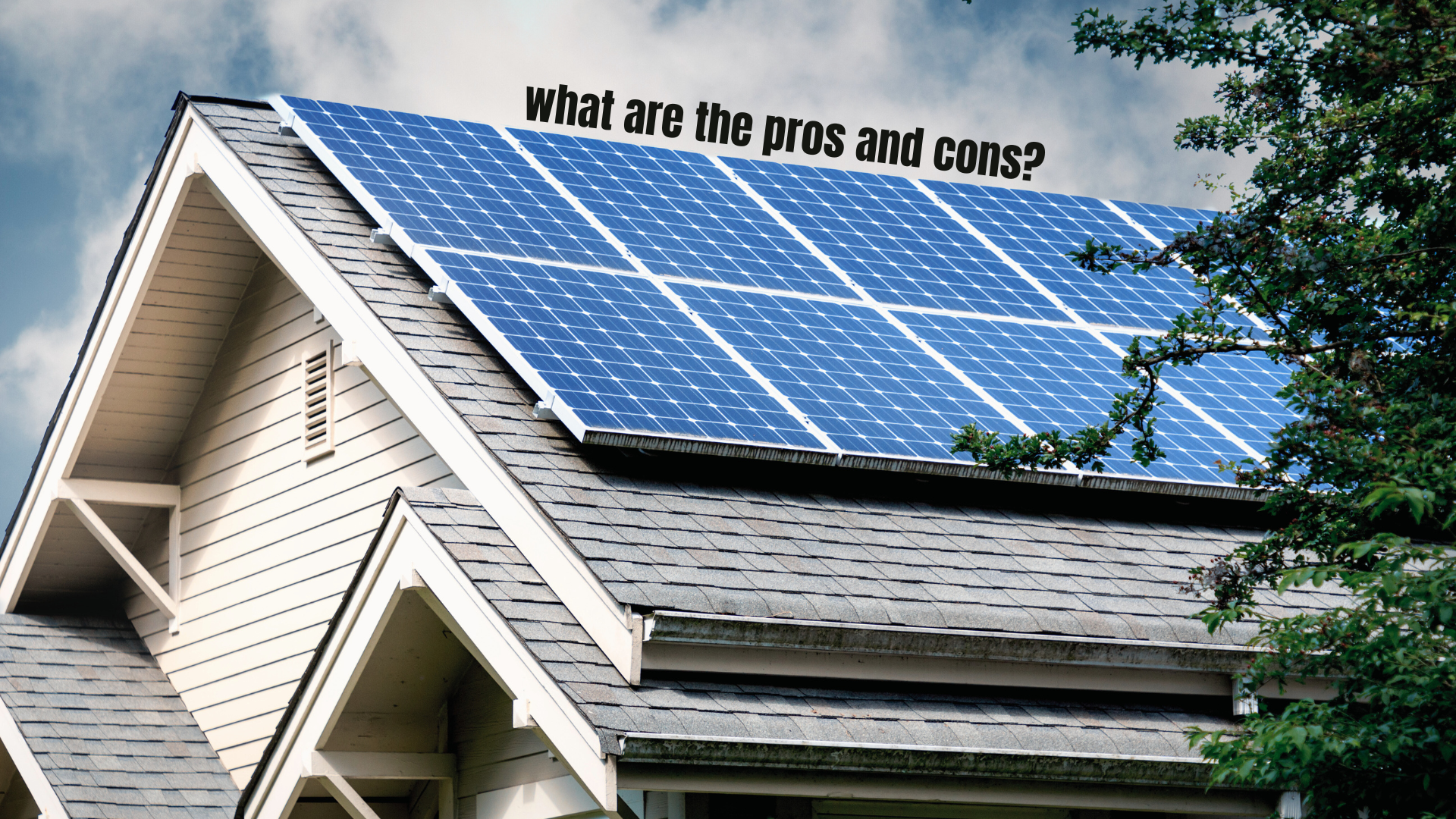As the world grapples with environmental challenges and rising energy costs, the growing trend of installing solar panels is gaining traction, driving many homeowners to consider changing to solar energy. If you’re considering the move, it’s worth doing your homework before taking the plunge. Although there are many benefits to installing solar power for homes, is it worth the investment?
Solar power for homes can be worth the investment in the long run, yielding potential savings and eco-friendly energy, but it’s not an ideal option for everyone. Bad roof conditions, incorrect orientation, budget constraints, and other circumstances can make it unsuitable for some homeowners.
Solar power is garnering much support as a sustainable energy source, and the attractive idea of saving money often convinces people to invest in solar panels for their homes. But solar energy is not a one-size-fits-all solution. Homeowners should ask themselves whether the advantages of home solar energy outweigh the costs and drawbacks before they make their final decisions.
The Pros and Cons of Solar Power for Homes: Is It Worth It?
The first step in deciding whether solar energy is a wise investment for your home is to consider the pros and cons of these systems.
Benefits of Installing Home Solar Power
There are several good reasons to install home solar panels on your property, ranging from financial benefits to living a greener lifestyle.
It Reduces Your Carbon Footprint.
Installing a home solar system generates power by converting particles of sunlight (photons) into electricity, reducing your dependence on fossil fuels. Research by the National Renewable Energy Laboratory indicates that during the expected 28 years of solar energy production, a home system meeting about half a household’s electricity needs would save over half a ton of sulfur dioxide emissions, 100 tons of carbon dioxide, and one-third of a ton of nitrogen oxides.
You Save On Energy Costs.
Although the initial outlay for a home solar power system can be quite high, the financial benefits may outweigh the upfront costs. Because you will generate your own power, you can drastically reduce or even eliminate monthly electricity expenses. Switching to solar is also more affordable these days, as installation costs have decreased by about 40% in the last decade.
You Can Be Energy-Independent.
Home solar panels facilitate pulling less electricity from the grid. With the support of solar batteries to store excess energy for evening use or when it’s cloudy, you can power your home independently of the grid.
Home Solar Systems Add Value To Your Home.
When you purchase a home solar power system, potential buyers view it as an upgrade, adding value to your home. Buyers are often willing to pay upwards of $15 000 more for a home with an average-sized array. Homes with solar panels also tend to sell faster.
You Could Benefit From Net Metering.
If you have grid-tied solar panels, you can benefit from net metering. This allows you to feed unused electricity back into the grid, causing your meter to run in reverse to the value of the excess power generated.
The Government Incentivizes Solar Power For Homes.
Homeowners installing solar power can benefit from local, state, and federal tax incentives. The federal solar tax credit allows an income tax rebate of 30% of your solar system installation costs. Some states and local utility companies offer additional incentives and once-off rebates, encouraging homeowners to purchase sustainable energy sources. (Related article: The Cost of Solar Panels in Florida: Is it Worth it?)
Drawbacks of Installing Solar Power
Major purchases always have their drawbacks, most often the costs. Here are some of them:
Solar Panels Are Costly.
Despite significant cost decreases in the last ten years, the initial outlay when installing solar panels is still very high, putting it out of reach of many homeowners. It can cost in the region of $26 000 for an average home system with a 7kw output. Although some companies offer financing, it will include paying added interest and fees.
You Could Have A Long Payback Period.
Few people understand how long it can take for their home solar systems to pay for themselves. The average period is 6 – 12 years, but this isn’t cast in stone. It varies according to your electricity costs, usage, and the incentives available in your area.
Some Homes Don’t Have The Right Conditions.
Solar panels are designed to work in all climate types, but if your area doesn’t have too many sunny days, it can lead to low energy stability and dependability. Some rooftops may be less than ideal for solar installations due to their age or shade from nearby trees or buildings. The size, slope, and orientation of your roof can also have a significant impact on solar power efficiency.
In the northern hemisphere, solar panels work best on south-facing rooftops at angles of 15 – 40 degrees. If most of your roof faces the wrong direction, it may not be worth investing in solar power for your home.
If your roof only has a few years before it needs replacing, it may not be ideal to install solar power on it. Also, if it’s in less than stellar condition, the panels may damage the roof. Home solar power systems need at least 650 square feet to fit only a few panels, so in this case, size matters. If your roof is too small, it won’t be worth the investment because the panels will not be able to generate sufficient energy. (Related article: Are Solar Panels Worth It in Texas?)
When is it Worth Investing in Solar Power for Homes?
With a better understanding of the pros and cons of investing in home solar power systems, it’s evident that it is worth it under specific circumstances:
Does It Make Financial Sense?
Cost is usually the deciding factor in deciding whether installing solar power for homes is worth the investment. To get an accurate answer to this question, you should calculate the following:
Final Thoughts
Solar power for homes can be worth the investment, especially in the long term. If you have the capital available for the relatively high outlay and your home is suitable for the installation, you can enjoy the environmental and eventual financial benefits. If it is unaffordable or conditions are not ideal, choosing other renewable energy sources might better meet your needs.


